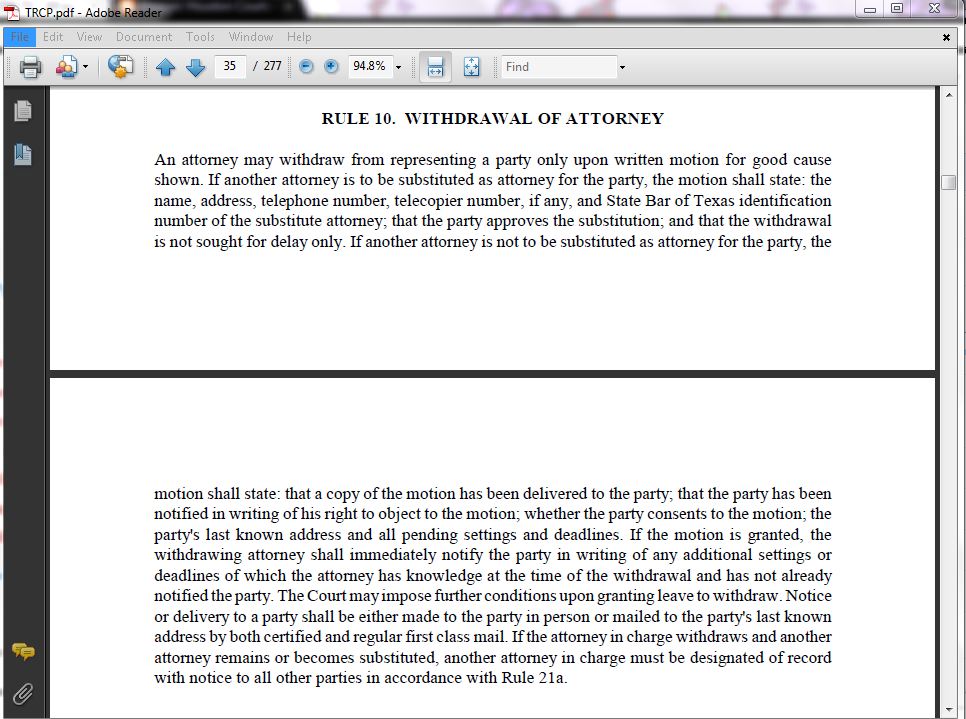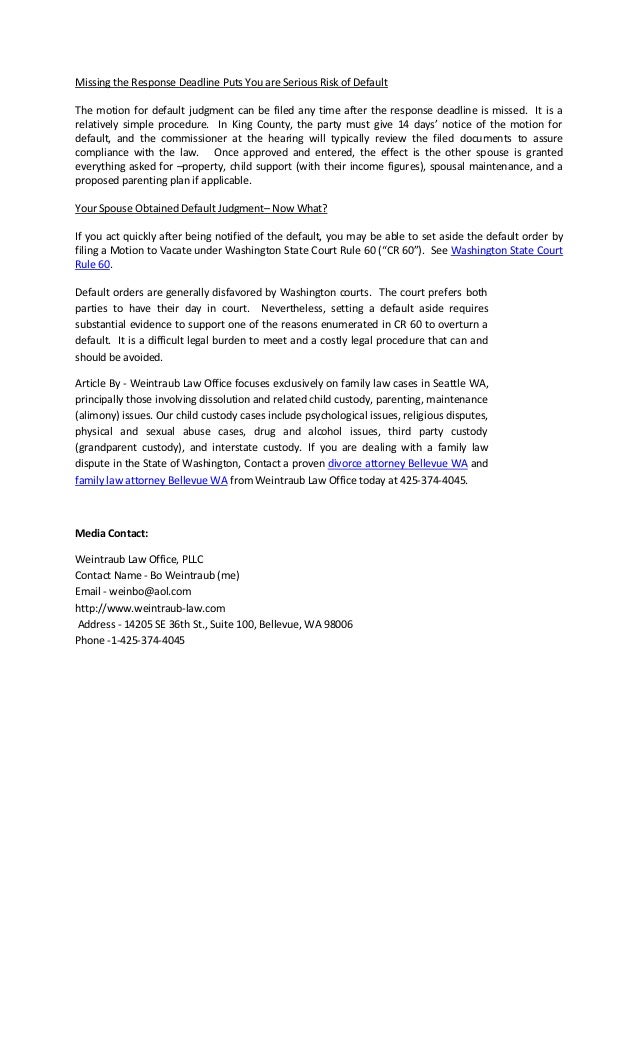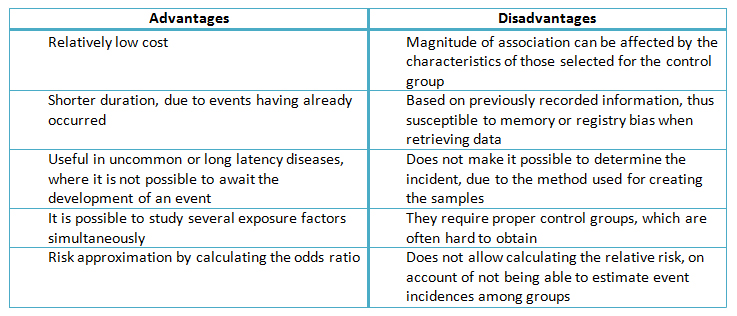In these types of cases, any party or counsel may request an expedited pendente lite hearing by filing the appropriate motion and a motion to shorten time. The latter must be filed in accordance with Md. Rule and must include the required written certifications of failure to reach agreement and notice. Although the rule itself does not specify a time requirement for notice, the Court requires that 24 hours advance notice be provided before the motion to shorten time may be granted ex parte. The motion to shorten time shall promptly be presented by the clerk to the designated chambers Judge for ruling. The motion for expedited pendente lite hearing will be ruled on by the DCM Judge or designee.
Expedited pendente lite hearings are limited in time to one hour. Every family law case will be screened for allegations of physical or sexual abuse of a party or child along with other domestic violence issues. Most contested divorce cases begin with what is known as a hearing on either party's request in the form of a Motion for Temporary Relief. This is perhaps the most critical phase of any South Carolina Family Court action. At this hearing, the Family Court addresses all issues raised that require an interim decision .
Issues determined at this hearing can be the most critical such as custody of children, visitation, restraining orders as to assets, use and possession of the marital residence, and much more. At a temporary hearing, there is usually no live testimony but each party is allowed to present written testimony in the form of affidavits. Sometimes, the Divorce Attorneys will have the opportunity to argue their client's position, other times they will not. The SC Family Court Judge has the opportunity to render a decision at the hearing the often remains in place until a final settlement or final merits hearing. While each case is different, there are several factors to consider when trying to determine how long a divorce takes in S.C. The length of time largely depends on whether the divorce is contested or uncontested.
A contested divorce occurs when there is a dispute involving child custody, child support, visitation, alimony, or the division of property or assets. These divorces can sometimes last over a year. The court allows the parties to engage in discovery to obtain evidence from each side.
Parties will request answers to written questions , request documents to be produced, and participate in depositions and subpoenas. Discovery alone can take months to complete. A strict continuance policy will be followed for all family law matters since parties and counsel will have had the opportunity to provide scheduling input at the time of the scheduling conference or pre-trial settlement conference. Scheduled events, including pre-trial settlement conferences, will not be postponed merely by the consent of the parties or because discovery or alternative dispute resolution has not been completed. Once a petition has been filed with the court, it must be served on your spouse who is known as the Respondent to give them notice that the case exists.
The easiest, most cost effective and time saving method is for the Respondent to agree to accept and acknowledge service in writing which is then filed with the court. This lets the court know that the case is ready to proceed to the next level. Even at this point, the very soonest your case could be over is at least 61 days because the court, by law, cannot enter a final decree until after 60 days have passed from the time of service on the Respondent.
This is known as a "cooling off" or waiting period in the event the parties change their mind about wanting a divorce. Considering that most courts have busy calendars, even a uncontested divorce hearing will usually be scheduled well beyond the 61st day. This is known as a default divorce and is the best case scenario. On the day of the divorce hearing, it's a good idea to arrive early, in order to have plenty of time to locate the courtroom in which your case will be heard, and compose yourself. After you arrive at the court building, you should consult the list of cases displayed in the foyer, in order to determine the number of the courtroom in which your case will be heard. You can then wait by the courtroom for the court orderly to call on your case, at which point you'll enter the courtroom and sit at the table opposite the Registrar of the Court.
The only matter that will be considered by the Registrar at the divorce hearing is whether or not to grant your divorce. The Registrar will not be considering any reasons for the divorce, nor will it consider any issues such as parenting arrangements, child support, spousal maintenance, child custody or property settlement. To begin the SC divorce process, one spouse ("Plaintiff") files a Complaint for Divorce.
After it is filed, it must be served on the other spouse, ("Defendant") along with aSummons. The Summons informs the Defendant that a divorce action has been brought by the Plaintiff, and he or she must accept and answer the Complaint for Divorce. After the Defendant is served, he or she must file an Answer to the Complaint for Divorce. The Answer provides the Defendant with an opportunity to state any complaints or defenses he or she has related to the claims in the Complaint. If the parties are able to reach an agreement, they can sign a Settlement Agreement to divide the property, assets, debts, and liabilities.
The Divorce Agreement can also settle matters of child support, custody, and visitation. Proceedings before a Magistrate are subject to the provisions set forth in the Maryland Rules governing the use of Magistrates (Md. Rule 2-541). A contested case begins with the Respondent filing an answer to the petition. The answer typically disagrees with some or all of the allegations contained in the petition and may contain additional allegations and requests for relief than the petition. This places the case at issue which tells the parties, their attorneys and the court what the contested issues are. At the default hearing, the Petitioner is placed under oath and is asked a series of questions by their attorney to establish the existence of residency requirement among other important information for the judge.
The Petitioner's rehearsed answers inform the judge that an agreement has been reached on all issues and that the grounds for dissolving your marriage exist. The judge will then render a decree of divorce which legally dissolves your marriage. The terms of the MSA become legally binding and a part of the decree of divorce. Divorce may be either contested or uncontested.
The divorcing parties provide the court with a copy of their agreement and, assuming that there are no major red flags, the agreement is typically approved and adopted as an order of the court. However, Milwaukee divorce lawyer Terese J. Singer recognizes that an uncontested divorce is not always feasible. Scheduling Conferences in family law matters will be conducted by a Scheduling Conference Administrator unless otherwise directed by the Court. SCAs are attorneys who are on staff at the Circuit Court .
All matters that were previously considered at scheduling conferences in accordance with this Court's DCM plan will remain in place, with the following exceptions. Testimony will be taken by a judge or a sitting magistrate at the same date/time. The fee for mediation may be waived if a motion for waiver of family services fees, supporting affidavit and related documents are filed within 15 days of the Order for mediation. Information and forms for the waiver are provided by the family law division. When a motion for waiver of family services fees and supporting affidavit is received, it will be reviewed by the family law administrator and forwarded to the Administrative Judge for consideration.
Alternatively, the Court may request that a Court certified mediator provide mediation services at no charge to a litigant. Generally, if a party does not respond to the complaint, they lose by default and are essentially stopped from defending the case. But in our family courts, this is not the case. Even if a defending party does not respond to your complaint, you must still provide them notice of any hearing being held on the merits, as is normally the case under South Carolina Rule of Civil Procedure 5.
Their failure to respond is also not deemed an admission, as it normally would be under South Carolina Rule of Civil Procedure 8. Additionally, that defendant may be heard at a merits hearing when the issue is child custody, visitation, alimony, support, equitable distribution, or attorney's fees. Normally, pendente lite hearings should be requested and will be set, if necessary, at the time of the scheduling conference. Once the time has passed for a response, which may be shortened in accordance with Md. Rule upon request of counsel or a party, the motion will be considered by the DCM Judge or designee and if the request is granted, scheduled by the assignment office as directed by the court. When the parties reach an agreement on some or all issues, the mediator prepares a written draft of the agreement and submits it to the parties and their attorneys.
If the agreement is approved as written or modified, the mediator submits it to the Court for approval and entry as an Order. Parenting plans or agreements are mailed to the office of case management which will prepare an appropriate Order. If an agreement is reached, mediators shall forward the final, signed copy of the parenting plan to the office of family law case management at the conclusion of the10 business day waiting period. The lawyer's role is not clearly defined when representing very young children.
In these cases, lawyers must substitute their own judgment on obvious matters such as protecting a child's bank account from an untrustworthy parent. The inability of a person to pay his bills as they become due. Also, a person's legal status in federal bankruptcy court. Alimony and child support are generally not affected, but property divisions, including the marital home, are unprotected from third party creditors. Temporary or interim orders are important to have in place even in a default case. Such orders can be obtained either by agreement between the two of you or one of you may specially petition the court for them.
If the parties agree on these issues, their attorneys can prepare and submit a stipulation with the court which is usually adopted by the court as a formal temporary order. A request for temporary orders can be filed at the same time as the petition and must likewise be served on the respondent. The purpose of this policy is to schedule a merits hearing for only those cases which are ready for trial.
The Court is attempting to facilitate settlement as early on in the case as possible to spare the parties unnecessary expense and delay. Parties involved in custody and visitation matters where there are no allegations of physical or sexual abuse of a party or child will be ordered to attend mediation. Alternative Dispute Resolution.
An out-of-court settlement process; arbitration, mediation, negotiation or collaborative law. Some states mandate ADR for divorcing parties, although parties maintain the right to have a judge decide their case. If parties settle, they may present their written settlement agreement to a judge who rules on its fairness and grants a divorce. Only courts can divorce the parties.
The parties may not agree to be divorced. Hence, settlement agreements may be called separation agreements or marital settlement agreements, never divorce agreements. The Court will set a standard period for discovery after a scheduling conference for different types of cases, i.e., two to three months for a standard family law case.
What Is A Merits Hearing In Divorce Initial interrogatories and requests for production of documents must be propounded within 30 days of the Order for scheduling conference. It is in everyone's best interest to negotiate and reach an agreement. Doing so avoids a costly, time consuming and emotionally draining divorce experience.
If the two of you are not able to reach an agreement, your case may require a trial in front of a judge who will then render their own judgment on the issues in your case. If you have very young children, a court's order will be in place for many years to come unless there is a substantial change in future circumstances that justifies its modification. A marriage dissolution begins when a party known as the Petitioner files a petition with the court requesting that their marriage to their spouse be dissolved. The petition usually also requests additional legal relief such as the division of community property, payment of debts, child support and custody or spousal maintenance also known as alimony. Either spouse can be the Petitioner so long as one of you meets the 6 month residency requirement for Texas. One of you must also have been a resident of the county where you file for the previous 90 days.
You may not need to be at your divorce hearing, and in practice, it's actually common that people don't need to attend their divorce hearings. Attendance at a divorce hearing is only required in the following circumstances. First, either you or a lawyer representing you must attend if you've filed a sole application and there's a child of the marriage who's under 18 at the time of filing. Second, either you or your lawyer must attend if you've indicated in your application that you wish to attend.
You don't need to attend the divorce hearing at all if you've filed a joint application with your spouse, in which you both requested that the case be heard by the court in your absence. You also don't need to attend if you've filed a sole application and you have no children who are under 18. Parenting Schedule or Parenting Plan. See also Custody and Visitation. Terms used by courts and lawyers since the mid-1990's when referring to parents' time with minor children or sharing of custodial rights and responsibilities. Deemed less emotionally charged than terms "custody" and "visitation."
Frequently, motions request temporary orders relating to support, maintenance of health and life insurance, and temporary custody of minor children. Once the Respondent has been served either by accepting service or using a process server, they have between 20 – 28 days to respond. This is known as the answer deadline period referred to above. You and your attorney may agree, in writing, to a limited or open extension of time to allow the two of you the opportunity to work things out and come to an agreement on all issues.
A primary characteristic of a merits hearing is that formal legal process is used to notify necessary parties and witnesses for the hearing and to secure their attendance. There should be a clear demonstration that the defendants have been served with the summons and complaint and the hearing notice for the merits hearing. Service issues need to be resolved initially at this hearing for the record to avoid delays in the future processing of the case. If notice of the merits hearing was contained in the probable cause order, proof of service of the probable cause order is sufficient notice for the merits hearing.
Otherwise, an affidavit of service for all parties should be provided to the court. Case outcomes are improved when all necessary parties receive timely notice of the merits hearing and timely service of the pleadings. A legal separation does everything that an S.C. Divorce does, except dissolving the marriage itself.
All issues pertaining to asset-debt distribution, child custody, visitation, and spousal support are decided in the same manner and with the same finality as they would be in a divorce. However, the parties are still married, therefore they cannot yet remarry, can still be sued for divorce, and their tax filing status will be affected as well. The Court will not automatically bifurcate custody cases. If, however, it would be appropriate and would facilitate settlement of the case, the attorneys may request or the Magistrate may recommend, bifurcating custody issues. A legal document filed along with pleadings or other court papers setting forth your lawyer's legal research in support of a request to the court. The legal, post-divorce procedure to change or modify a separation agreement, or the court's earlier decision and judgment.
Many judgments terminate alimony upon remarriage. Cohabitation during divorce can make a bad impression on the court and is usually unwise. A Final Merits Hearing will not be scheduled until all issues concerning property division, allocation of parental rights and responsibilities and support have been resolved either by agreement or court order. A "Request for Merit Setting" (Form No. 9.1) must be filed with the Court of Domestic Relations via e-filing, U.S. mail, or be presented to the Docket Office in Room 3-46 before a final hearing will be set. If the parties can agree on the custody, support, property, and financial issues, then the divorce will be "uncontested." Generally, uncontested divorces involve a separation period of at least one year.























No comments:
Post a Comment
Note: Only a member of this blog may post a comment.